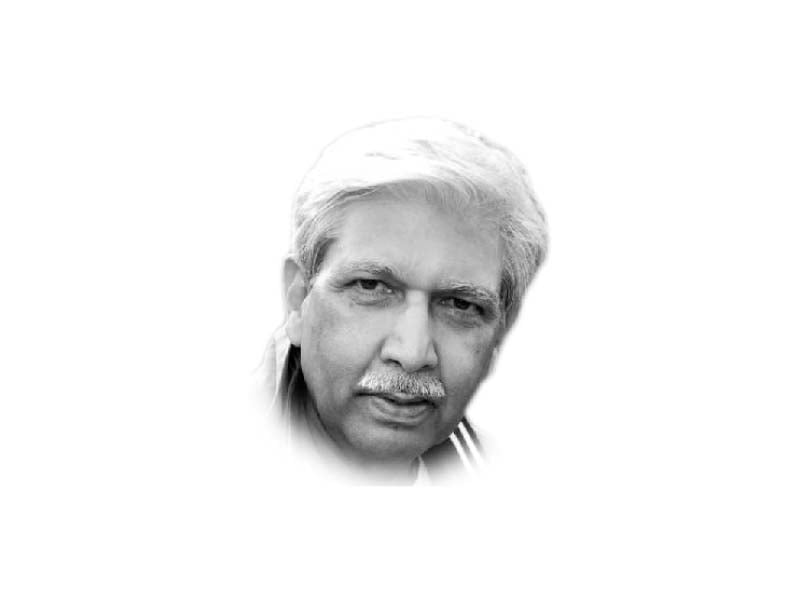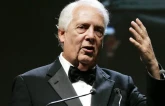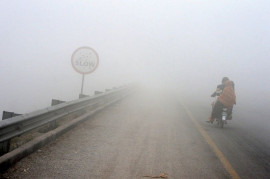
Naqabil-e-taskheer (insurmountable) is the word. How it got to be as consequential is another part of our history and Urdu from the womb of Persian must speak in poetic magnificence. Hence we take the expression to its ultimate exaggeration. Which really brings us down to the point, ‘so are we not naqabil-e-taskheer?’ Or, ‘are we taskheerable?’ Which is like saying, ‘what the hell have you all been up to with all that has been lain at your door?’ — to defend us and secure us. The truth is somewhere in between.
On 28th May, 1998, we were at the fag end of our year-long National Defence and Security Course of which the absolute last act was to present to the Prime Minister and his cabinet a roadmap to Pakistan’s security in its broadest sense. Intermediate presentations after each module of study and numerous sessions of debate and reflection on multifarious subjects enable participants to appreciate security beyond guns and tanks alone. I was one of the participants of the course and it had fallen upon me and three other colleagues to present to the prime minister, Nawaz Sharif, on what was our collectively recommended course of action to see off challenges facing us as a nation.
We were well into the exercise already when India threw a spanner in the works. It exploded its nuclear device(s) on May 13, in contravention of the universally recognised and accepted NPT and the CTBT (selectively recognised and ratified) of which it was never the signatory and hence not bound by its restrictive regime. Neither was Pakistan and that turned into a major test for our already sagging spirits to see the year through with a pro forma presentation. We were asked to change tack and instead address whether Pakistan too must explode. We were given two weeks and 28th May was chosen as the date for the presentation to the PM and his cabinet.
Our first minor challenge within this smaller group turned into a fierce debate whether Pakistan should even explode in response. There was a visible push by ‘those who knew and mattered’ to recommend to explode. I, a contrarian and ever the naive to the influence of power-play and its skilful leveraging, opted out. I was convinced Pakistan need not, that it would bring even greater difficulties to a struggling nation, and ambiguity as had been so exquisitely honed into a strategy over the years already served our strategic ends well. More like Israel’s bomb in the basement which everyone knew about but wouldn’t do or say much on because it was only based on (credible) assumptions. Here we were egging on to bring to the world our proof of the ‘crime’ by our own free will. An open admission of the guilt punishable by universal sanctions playing right into the hands of the Indians. We had had the bomb since 1984 and could drop it too. The world knew it, as did India but could do little about it. Stratagem than misplaced bravado would serve us well.
I was soon coaxed back ‘in line’ with some ‘counseling’ but avoided making the ultimate recommendation of the pictorial nuclear plume to suggest that we do. That part fell to a worthier member of the panel. Little did we know that the day was already marked for the explosions, that the arrangements were already in place and that the Prime Minister of Pakistan was heading directly into the command post after our presentations to order and manage the event. The rest of his cabinet and the military leadership stayed on customarily to indulge us with better explanations of what we had proposed as considerations and implications, all tweaked towards ‘Advantage Pakistan’. Two members of the cabinet were actively agitated on the issue, and they say as much in their respective recall of the day: Gauhar Ayub Sb was his passionate self seeking to give India a befitting reply, and Sartaj Aziz Sb was deliberate and measured still contemplating as to what such an overt declaration of our nuclearisation would bring to us as a consequence. The deed was done at 3PM that day. They knew; we did not.
I asked the air chief some time later of where his personal inclination stood on the matter and he was explicitly clear that he never had another thought than to explode. I was surprised and a bit concerned. We ought to think better though admittedly I have often wondered — without reaching a fully satisfactory answer — if indeed the six nuclear explosions that we made to India’s five have served us any better. But then one looks at how the world has evolved and in the larger sense it wouldn’t have really mattered. We would still be where we are. A lot of the geopolitical drivers that have forced events at the global stage hardly factored in our stupendously overt nuclearisation. Our problems and threats remain; Kashmir is still an unresolved issue; and our political and economic woes as a nation aren’t any better. The world had marched on and India would still be India even if we had restrained. But is that a fair strategic conclusion?
I think there was a compulsive matter of ‘psychological ascendancy’ in the strategic parlance that forced Pakistan’s hand in the immediate aftermath of India’s explosions. There could have been a more deliberate recourse to the immediacy of the challenge and time could have found us a better path to deal with it but we chose the one-up way. We gradually evolved it into what we now call strategic equilibrium or deterrence and that may have helped us save some blushes but it has forced another kind of war on us. In fact we were the first ones to punch holes in the theory of strategic deterrence in South Asia through the blunderous assault at Kargil but it also indicated how desperate were the two sides to discover alternate means to war. A series of events since have given us the irregular, non-conventional, alternate war when the two, conventional and unconventional, were taken out of the equation. Regardless, our woes have only multiplied and our issues complicated. The conventional was clean and finite, this one is messy and unresolvable. We are in a stalemated muddle groping in the dark for a way out.
Some years back at a Track-II event when India’s cold-start doctrine came under heavy scrutiny and barbs for its aggressive intent — peddled as India’s doctrinal epitome — Indians at the event began pedaling back on it declaring the whole idea needed reconsideration. A fellow retired senior Pakistani military officer immediately chipped in, “For heaven’s sake don’t make a change now. We barely got a response ready.” Such is the comfort of a stalemate even if it is a muddle. Let deterrence prevail. We barely found ways around it.
Published in The Express Tribune, October 15th, 2021.
Like Opinion & Editorial on Facebook, follow @ETOpEd on Twitter to receive all updates on all our daily pieces.

















1734778885-0/Untitled-(10)1734778885-0-270x192.webp)

COMMENTS
Comments are moderated and generally will be posted if they are on-topic and not abusive.
For more information, please see our Comments FAQ